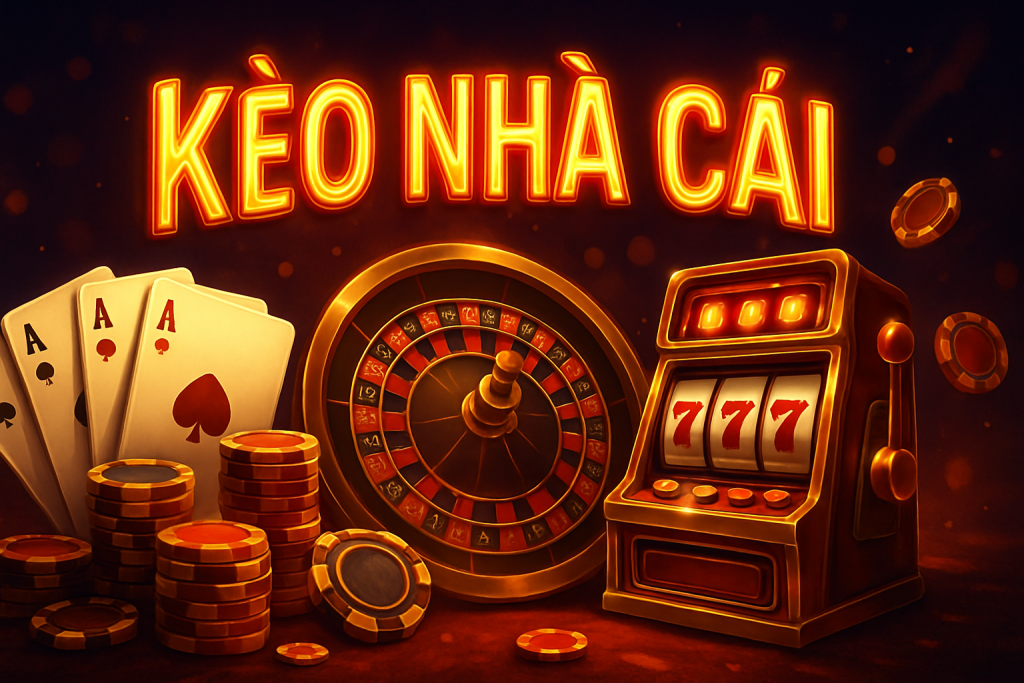
When stepping into the world of gambling, one term every player should understand is the house edge. It’s a fundamental concept that determines how much the casino expects to earn from each game in the long run. Whether you’re playing blackjack, roulette, baccarat, or slot machines, the house edge plays a crucial role in your potential outcomes. To make smarter betting decisions and compare game odds effectively, players often rely on expert resources like kèo nhà cái
So, what exactly is the house edge? Simply put, it is the mathematical advantage that the casino has over the player in any given game. Expressed as a percentage, it indicates how much the casino will earn on average from each bet placed. For example, if a game has a house edge of 5%, the casino expects to make $5 for every $100 wagered over time.
Different games offer different house edges. Skill-based games like blackjack or poker usually have lower house edges, especially if the player uses optimal strategy. In contrast, games of pure chance such as slot machines or roulette often come with higher house edges, meaning the casino has a stronger advantage.
Let’s break down some examples:
- Blackjack: When played with perfect basic strategy, blackjack has one of the lowest house edges, often ranging from 0.5% to 1%. However, any deviation from optimal play can significantly increase the casino’s advantage.
- Roulette: In European roulette, the house edge is around 2.7%, while American roulette, with its extra double zero, jumps up to 5.26%.
- Slots: These vary widely, but most slot machines have a house edge between 4% and 10%, depending on the game’s design and return-to-player (RTP) percentage.
- Baccarat: Known for its simplicity and fairness, baccarat has a house edge of about 1.06% on banker bets and 1.24% on player bets. However, the tie bet has a much higher house edge of over 14%, making it one to avoid.
Understanding these percentages can drastically influence your gaming approach. Many casual players chase big wins without considering the long-term mathematical disadvantage they’re facing. But those who educate themselves about the house edge can make better decisions and choose games where they have a higher chance of winning—or at least losing less over time.
It’s also important to recognize that house edge applies to the long term. In the short term, anything can happen—you might hit a massive win or suffer a losing streak. But over thousands of bets, the statistics will play out. This is why casinos are profitable: their edge ensures steady earnings as time goes on.
Some online casinos advertise games with very high RTP percentages—often 96% or higher. While that might sound great, remember that RTP is simply the flip side of the house edge. An RTP of 96% means a house edge of 4%. That figure is based on millions of game rounds, not a single play session. So while the odds may look better, they don’t guarantee individual wins.
There are also ways to minimize the house edge. One is learning the optimal strategy for games like blackjack or video poker. By studying and practicing strategy charts, players can make decisions that reduce the casino’s advantage. Another approach is choosing the right variant of a game. For example, European roulette gives better odds than American roulette, and some blackjack versions offer more favorable rules than others.
Bankroll management also plays a vital role. Knowing how much to bet and when to walk away can keep losses under control and extend your gameplay. Many experienced players set win and loss limits before starting a session and stick to them strictly.
Lastly, taking advantage of bonuses and promotions can give players extra value. Free spins, deposit matches, and cashback offers don’t reduce the house edge directly but can increase your playtime and chances of hitting a win without additional risk.
In conclusion, while you can’t eliminate the house edge, understanding it gives you a huge advantage. By choosing games wisely, playing strategically, and managing your bankroll, you can improve your chances and enjoy a more rewarding casino experience. Knowledge is power—and in the world of gambling, it just might be the difference between winning and losing.